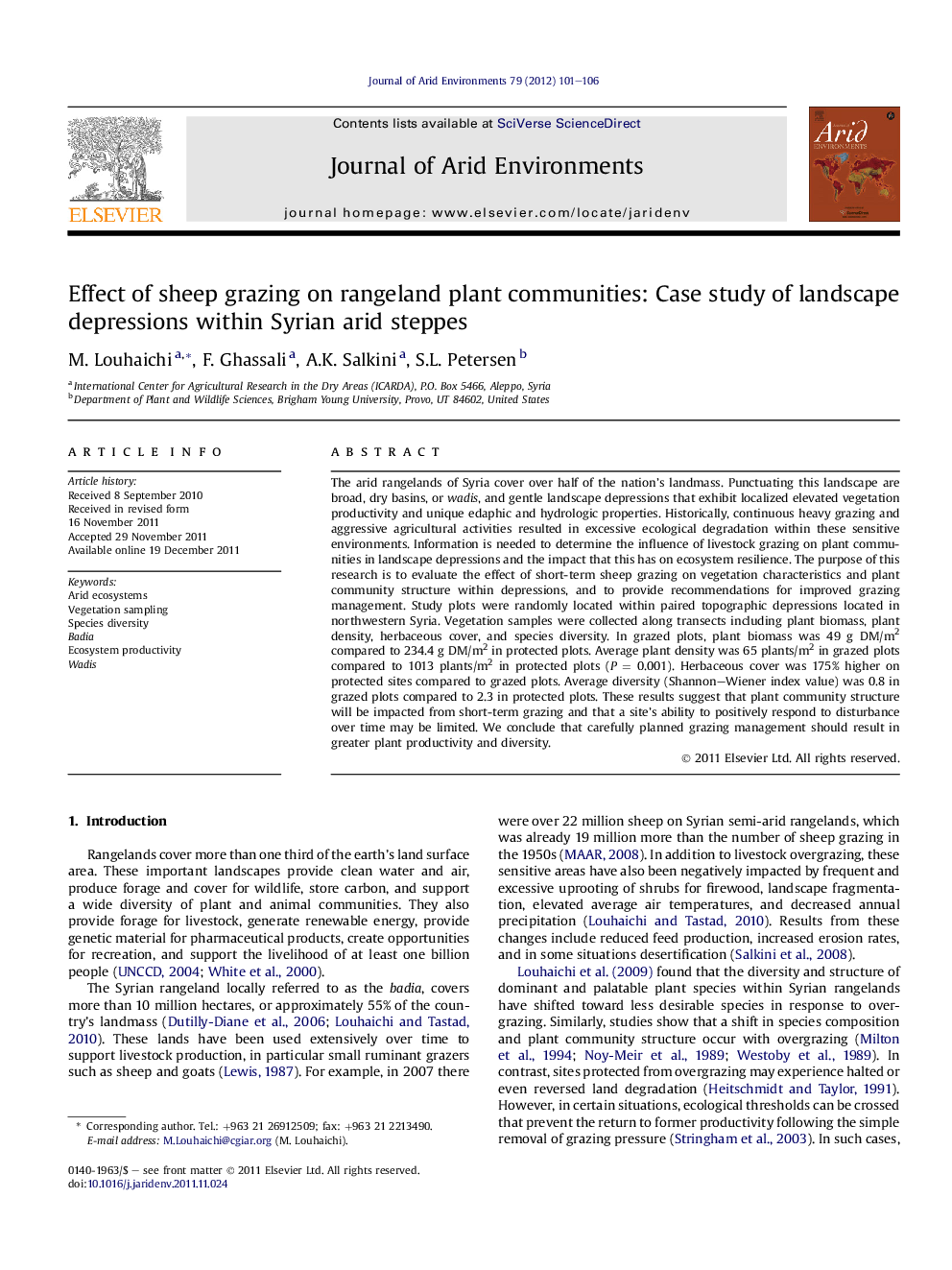| Article ID | Journal | Published Year | Pages | File Type |
|---|---|---|---|---|
| 4393449 | Journal of Arid Environments | 2012 | 6 Pages |
The arid rangelands of Syria cover over half of the nation's landmass. Punctuating this landscape are broad, dry basins, or wadis, and gentle landscape depressions that exhibit localized elevated vegetation productivity and unique edaphic and hydrologic properties. Historically, continuous heavy grazing and aggressive agricultural activities resulted in excessive ecological degradation within these sensitive environments. Information is needed to determine the influence of livestock grazing on plant communities in landscape depressions and the impact that this has on ecosystem resilience. The purpose of this research is to evaluate the effect of short-term sheep grazing on vegetation characteristics and plant community structure within depressions, and to provide recommendations for improved grazing management. Study plots were randomly located within paired topographic depressions located in northwestern Syria. Vegetation samples were collected along transects including plant biomass, plant density, herbaceous cover, and species diversity. In grazed plots, plant biomass was 49 g DM/m2 compared to 234.4 g DM/m2 in protected plots. Average plant density was 65 plants/m2 in grazed plots compared to 1013 plants/m2 in protected plots (P = 0.001). Herbaceous cover was 175% higher on protected sites compared to grazed plots. Average diversity (Shannon–Wiener index value) was 0.8 in grazed plots compared to 2.3 in protected plots. These results suggest that plant community structure will be impacted from short-term grazing and that a site's ability to positively respond to disturbance over time may be limited. We conclude that carefully planned grazing management should result in greater plant productivity and diversity.
► We compare vegetation of landscape depressions (LD) under two grazing regimes. ► LD in Aleppo steppe have great potential to alleviate livestock feed gap. ► Protection from sheep grazing does not necessarily enhance quality of forage. ► Grazing management is needed to reverse deterioration of LD in arid Syrian steppe.
